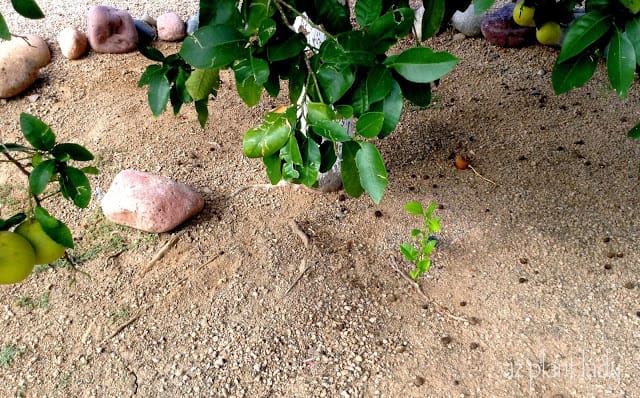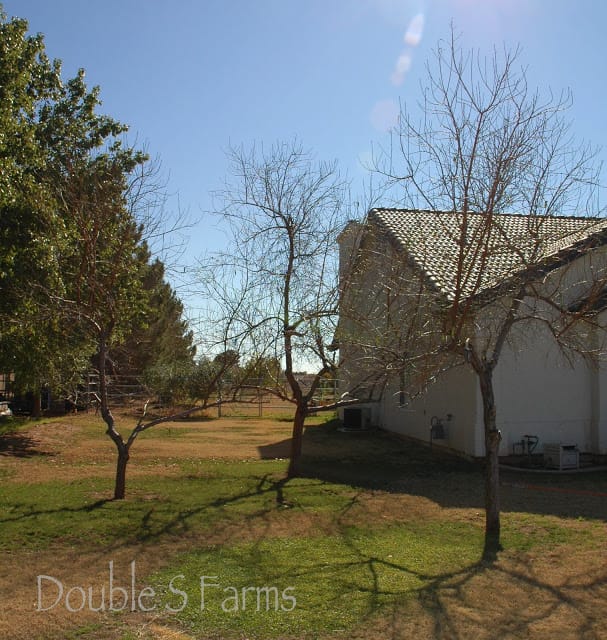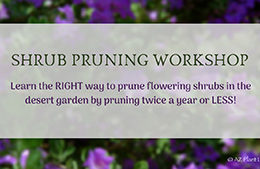Fruit Tree Suckers – How to Identify and Get Rid of Them

Fruit Tree Suckers
The other day, I was walking through my edible garden, admiring the ripening peaches on my tree, which I looked down and saw an unwelcome sight…

Suckers!
So, what are suckers and why are they bad for fruit trees?
Most fruit trees consist of two parts: the scion (the top part) and the rootstock (the bottom).
Fruit trees are grafted onto rootstock. Occasionally, the rootstock decides to send up its own branches, which literally ‘suck’ up nutrients from the tree – hence the name ‘suckers’.
It is usually easy to identify suckers because the originate toward the bottom of the tree, below the bud union (where the tree connects to the rootstock). The bud union usually looks like a slightly swollen spot on the trunk.
Okay, so now we know what suckers are. Now how do we get rid of them?

Pull the suckers away from the tree trunk and use a sharp hand shovel or regular shovel to cut them from the tree.
Be sure to remove the entire sucker at the point where it attaches to the tree trunk, or it may grow back.
Note the slightly swollen part above the suckers – that is the bud union. Any branches that grow below this point should be removed.

Once the suckers are removed, simply throw them on your compost pile or in the trash.
The solution to suckers is a very simple one. Wouldn’t it be nice if every garden problem were this easy to take care of ?
What Is Wrong With This Citrus Tree: The Answer

 Noelle Johnson, aka, 'AZ Plant Lady' is a author, horticulturist, and landscape consultant who helps people learn how to create, grow, and maintain beautiful desert gardens that thrive in a hot, dry climate. She does this through her consulting services, her online class Desert Gardening 101, and her monthly membership club, Through the Garden Gate. As she likes to tell desert-dwellers, "Gardening in the desert isn't hard, but it is different."
Noelle Johnson, aka, 'AZ Plant Lady' is a author, horticulturist, and landscape consultant who helps people learn how to create, grow, and maintain beautiful desert gardens that thrive in a hot, dry climate. She does this through her consulting services, her online class Desert Gardening 101, and her monthly membership club, Through the Garden Gate. As she likes to tell desert-dwellers, "Gardening in the desert isn't hard, but it is different."














